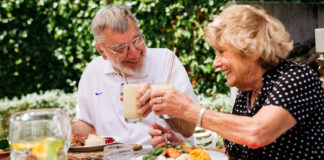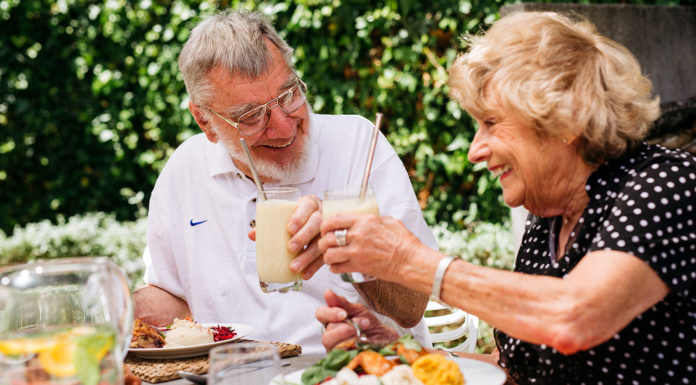If you think all CEOs are the same, you haven’t met the one with a penchant for pythons.
Helen Mason makes the surprise confession, shortly after detailing her penchant for controlling budgets.
“You have to be really careful because, in captivity, they do tend to get … Kind of mouth things going on.”
Bay of Plenty District Health Board’s chief executive left her home country, Zimbabwe, before she could adopt a pet python, but it hasn’t stopped her unleashing her audacious side in Tauranga.
Parasailing, tandem-skydiving, rope courses, big swings – she’s done it all, including delivering 30 babies (she was once a nurse and midwife).
An affection for adventure is hardly surprising when she’s happy to curl up with a pride of lions.
“It’s just awesome; it’s amazing,” she says of her last big holiday, where in Africa, she slept in an unfenced safari. Alongside the big cats humming and puffing; crocodiles and hippos bathed in a silver river, and elephants trumpeted under her celestial view from the tent.
Then there was the exhilaration of travelling in a jeep, in a jungle, in the middle of a seething thunderstorm.
“I’m probably a bit of a risk-taker, and people might not pick me as a risk-taker. I do like pushing boundaries.”
Example: When son, Mungo, was five, he climbed up a lamp post in Melbourne. His aunt looked on in alarm. His mother said: “Is that the highest you can go?”
At 52, she oversees a board that serves 229,000 residents. Every year, she and the DHB have a budget of $760 million.
She isn’t a stiff corporate. She has worked on the ground floor and knows the value of a hard-earned dollar. She and her sisters, Jenny and Liz, were brought up by their mother, Betty Lydon, after their parents split when Mason, the youngest, was five.
Born in Kilrush in County Clare, Ireland, she grew up in Rhodesia, modern-day Zimbabwe, from age one. Her mother, a nurse, worked in remote parts of Africa caring for indigenous people.
After her parents’ separation, she and her sisters spent most of their childhood in the small town, Gweru, home of the Shona tribe.
Her mum, “a strong woman”, worked tirelessly for her girls. Talk of her gets her emotional: “I’m a sap … I get all choked up.”
The council refused to sell the all-female family the municipal house they lived in, for no other reason than her mum was a woman.
Mason immigrated to New Zealand in 1996 with husband and Tauranga City councillor Max Mason, whom she married in 1990. He was the older “boy across the road” – a boarder at her school, but they didn’t connect until after their respective OEs.
A qualified nurse, she also trained as a midwife in South Africa but didn’t continue the practice after graduating. She obtained an MBA while living in Scotland.
On arrival in Tauranga from the UK, she worked as a healthcare assistant at Matua Lifecare; before completing a six-week return to nursing programme. She worked nights at Tauranga Hospital, so she could care for son, Mungo, during the day.
Since then, she’s had eight roles at the hospital and has been with the DHB for nearly 20 years. She is 18 months into her role as CEO. A feat in position, for someone who once avoided eye-contact in meetings, for fear of being centrestage.
“I sometimes joke that patients are safer now that I’m at a computer! And I never did anything bad to harm a patient, I can reassure you. It’s just a chirpy comment.”
She does have a sense of humour. She also has a near-naked desk: “We do try to avoid paper.” She likes Post-It notes.
She gets “lovely” letters and Facebook posts, but some negative ones too.
“Sometimes we could’ve done better, and other times we couldn’t. When we do [get things wrong], it tends to be about the system, not one person. We’ve got 3300 staff and I don’t think anybody is trying to do a bad job.”
She’s “fair and reasonable” and tries to see both sides. “You can’t leap to assumptions.”
Running a hospital is surely a ridiculously stressful job, but Mason, who received a Harkness Fellowship in 2014-15, doesn’t look ruffled.
At least three days a week she goes for a morning run in Matua. Sometimes she listens to audiobooks while running. After exercising, she’ll flick through the Bay of Plenty Times and New Zealand Herald. On the way to work, she listens to National radio.
Every day is different. Sometimes she’ll travel to Wellington – she’s Midlands chief executive on the employment relation strategy group. Sometimes she’ll visit Whakatane Hospital.
Today’s agenda, aside from this interview, includes, but is not limited to: A national teleconference about employment relations. A catch-up with a staff member. A visit to the hospital’s assessment planning unit, where they’ve got an event on. A final reference check before she appoints someone to an executive role.
After work, she’ll go to the hospital gym and do a balance class – a combination of yoga, tai chi and pilates.
When she’s at home, or on holiday, she tries to steer clear of emails. Work-life-balance is important.
“As a good employer, we shouldn’t be expecting people to give and give, and give. Because if you don’t have balance between what is happening at home and at work, you’re not going to be doing a great job.”
Last year she did the 50km Oxfam walk. She’s done the Auckland marathon three times, and just completed Tauranga’s first international marathon with husband Max, who in 2015 walked the 3500km Appalachian Trail.
“If we are talking to our population about being fit and healthy, then I do think it’s important we do what we say.”
When she goes on holiday, she leaves her stand-in an empty mailbox and expects the same on return. It allows for a “proper holiday”. Of course, if anything crazy happened like “an earthquake and the hospital was gone”, she expects to be contacted.
“It’s also about having a team that you know is really, really competent, and does a great job. And you shouldn’t be second-guessing them.”
Her next big holiday is in November, when she and Max go to America to see only child and Waikato University law and international business student, Mungo, 21, who is spending a semester in Chicago studying law and playing rugby for the Chicago Lions.
Now empty-nesters, weekends are spent with home renovations, reading – she’s in a book club and partial to American novelist, John Irving.
“He writes quirky books … Often his characters are wrestlers because he wrestles himself. Quite often there’s bears in his books.”
It’s perhaps important to enter fantastical worlds when work issues can be threatening.
Nationwide there’s been talk health boards are feeling increasingly under pressure to meet the government’s financial targets without compromising patient care.
“Things got a lot tighter after the Global Financial Crisis, but we still, every single year, get increases in funding [in New Zealand].” The Bay of Plenty is given a “massive resource”, she feels.
“Last financial year we ended up being slightly off where we were hoping to be, but by less than 1 per cent. I think it’s incumbent on me as chief executive, and us as an organisation, to be focusing on what we do have, and using it in the best way possible, rather than making it our community’s concern.”
The board works constantly to improve the way things are done and they rely heavily on studies and feedback before making recommendations and decisions. No one wants to be, or should be, in hospital for longer than they need to be.
This is something she’s passionate about, and she sends me home with an armful of hospital resources for perusing.
She is the perfect mix of skilled authoritarian, but caring and adventurous human being.
Before meeting her, I was told by one of her colleagues: “You come across a lot of people in higher positions who talk the talk of caring about people but she really is different.”
On her bucket list is to go to India; and one day to the Amazon, to see an anaconda – of course. It’s a life less ordinary for this CEO.




















